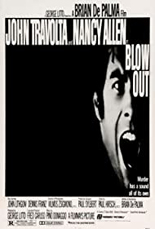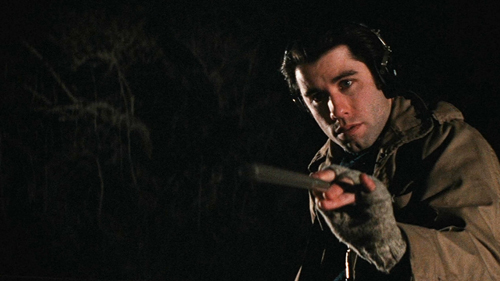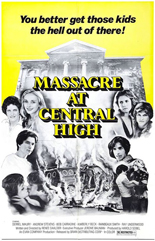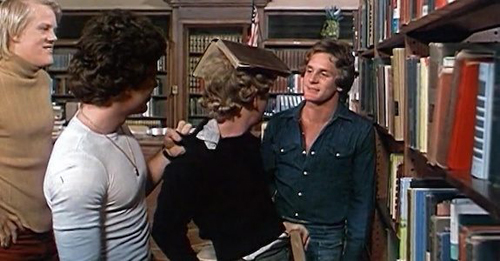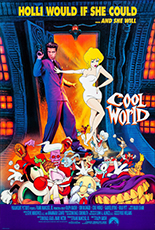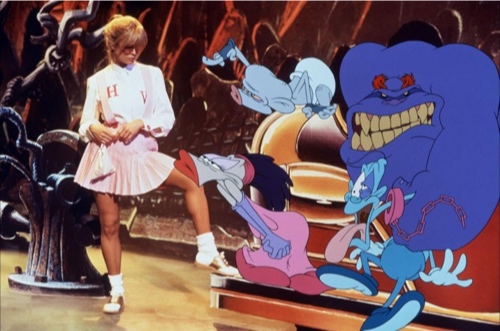
 Released under a myriad of titles — Breakfast at the Manchester Morgue, Let Sleeping Corpses Lie, Don’t Open the Window and so on — the Spanish-Italian film The Living Dead at Manchester Morgue calls itself a comedy, but in the 44 years of watching subpar movies, I never thought it was a comedy. Boring, maybe … but a comedy? I don’t think so.
Released under a myriad of titles — Breakfast at the Manchester Morgue, Let Sleeping Corpses Lie, Don’t Open the Window and so on — the Spanish-Italian film The Living Dead at Manchester Morgue calls itself a comedy, but in the 44 years of watching subpar movies, I never thought it was a comedy. Boring, maybe … but a comedy? I don’t think so.
As the swinging, swanky theme plays, a buxom lass flashes her wares to no one in particular. I don’t know who that is or what they want, but that’s replaced with chemical runoff, overflowing trash bags and a stiff upper lip. I guess it’s an ecological film now?
After a fender bender with with Edna (Cristina Galbó), George (Ray Lovelock) hitches a ride with her to the English town of Windermere. While asking for roadside directions, some of the local farmers are testing some machinery utilizing sound waves. It wakes the dead and, thank God, one of the character’s heroin habit. Yeah.
Meanwhile, the inspector (Arthur Kennedy) has some serious anger issues that should be dealt with, until he is barely strangled in the finale.
With the exception of a few well-executed zombie designs, this tries to be five or six films and, as we learn, Manchester Morgue can barely get one off the ground. The mixing of ecological themes, zombie dirges, police procedurals, ill-fated drug drama, British sex comedy and some sort of weird ritual to revive the dead via their eyelids, it is too much.
I did like the randy breasts, though. Pip-pip, my good sir! —Louis Fowler



